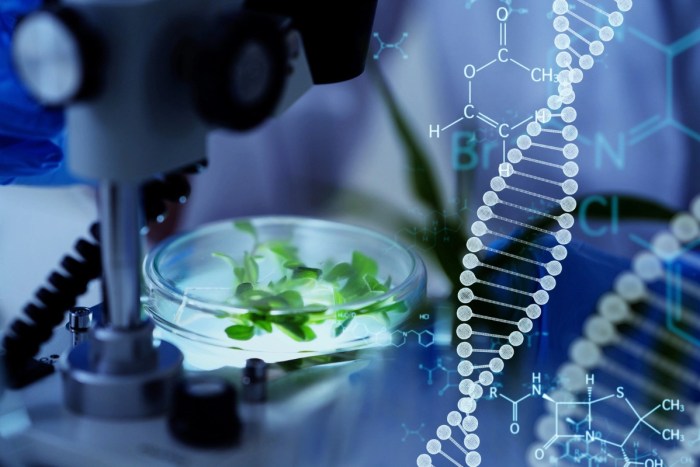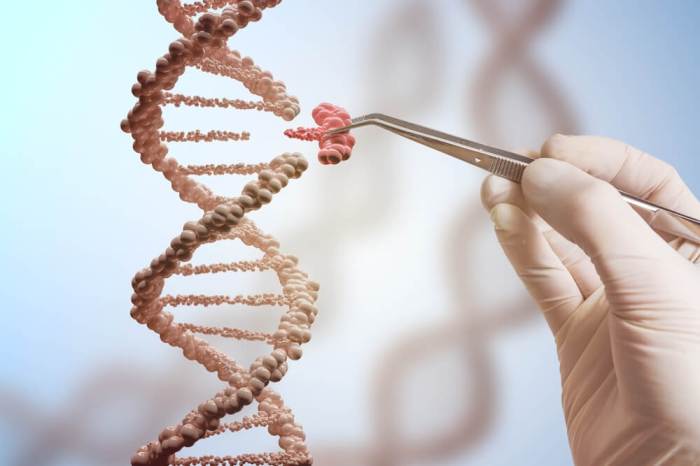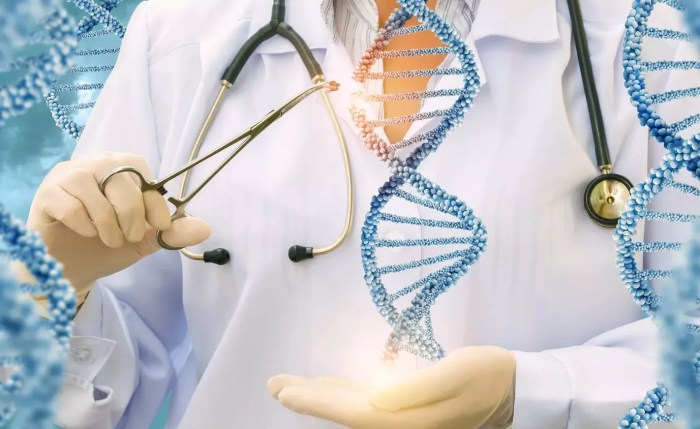Embark on a biotechnology and genetic engineering webquest to unravel the profound implications and transformative applications of these groundbreaking fields. Delve into the historical evolution, cutting-edge techniques, and ethical considerations that shape the frontiers of biotechnology and genetic engineering.
From the inception of DNA cloning to the advent of gene editing, biotechnology has revolutionized our understanding of life itself. Explore how these technologies are reshaping medicine, agriculture, and environmental science, paving the way for unprecedented advancements.
Biotechnology and Genetic Engineering: An Overview
Biotechnology encompasses the application of biological organisms, systems, or processes by various industries to learn about the science of life and the organisms that inhabit the Earth. Genetic engineering, a subset of biotechnology, involves the manipulation of an organism’s genetic material to alter its characteristics or functions.
Historical Development
The origins of biotechnology can be traced back to ancient practices such as fermentation and selective breeding. Modern biotechnology emerged in the mid-20th century with the discovery of the structure of DNA and the development of recombinant DNA technology. Genetic engineering gained prominence in the 1970s with the invention of gene cloning and gene editing techniques.
Applications
- Medicine: Developing diagnostic tests, therapies, and vaccines for diseases.
- Agriculture: Creating genetically modified crops that are resistant to pests, diseases, and environmental stresses.
- Environmental Science: Bioremediation, pollution control, and conservation efforts.
Techniques and Applications of Biotechnology

Techniques
- DNA Cloning: Isolating and amplifying specific DNA fragments for study or modification.
- PCR (Polymerase Chain Reaction): Rapidly copying DNA fragments for various purposes.
- Gene Editing: Using enzymes like CRISPR-Cas9 to precisely modify DNA sequences.
Applications
- Medicine: Developing gene therapies for genetic diseases and personalized medicine approaches.
- Agriculture: Creating genetically modified crops with enhanced nutritional value and yield.
- Environmental Science: Bioremediation of contaminated sites and development of biofuels.
Case Studies
- Insulin Production: Genetically engineered bacteria produce human insulin for diabetic patients.
- Golden Rice: Genetically modified rice fortified with vitamin A to address malnutrition.
- Bioremediation of Oil Spills: Genetically engineered bacteria degrade oil contaminants in marine environments.
Ethical and Social Implications of Genetic Engineering

Ethical Concerns
- Unintended Consequences: Modifying an organism’s genetic material could have unforeseen effects on the organism or the environment.
- Impact on Biodiversity: Genetically modified organisms could potentially disrupt natural ecosystems.
Social Implications
- Equity and Access: Concerns about equitable distribution of benefits and access to genetic engineering technologies.
- Public Perception: Negative perceptions and mistrust can hinder the acceptance and application of genetic engineering.
Debates
- Genetically Modified Food: Safety concerns and labeling requirements.
- Designer Babies: Ethical implications of using genetic engineering to select desired traits in humans.
Future Directions and Innovations in Biotechnology: Biotechnology And Genetic Engineering Webquest

Emerging Trends, Biotechnology and genetic engineering webquest
- Synthetic Biology: Designing and building new biological systems from scratch.
- Gene Therapy: Using genetic engineering to treat genetic diseases by modifying the patient’s own cells.
Potential Benefits
- Personalized Medicine: Tailoring treatments to individual genetic profiles.
- Environmental Sustainability: Developing environmentally friendly technologies and biofuels.
Challenges
- Safety and Regulation: Ensuring the safety and ethical use of new technologies.
- Public Acceptance: Overcoming negative perceptions and building trust.
FAQ Section
What is the difference between biotechnology and genetic engineering?
Biotechnology encompasses a broad range of techniques that utilize living organisms or their components to create or modify products or processes. Genetic engineering, a subset of biotechnology, specifically involves the manipulation of an organism’s genetic material to alter its traits or functions.
What are the potential benefits of genetic engineering?
Genetic engineering offers the potential to improve crop yields, enhance disease resistance, develop new medical treatments, and create sustainable energy sources.
What are the ethical concerns associated with genetic engineering?
Ethical concerns include the potential for unintended consequences, such as the impact on biodiversity and the potential for misuse or discrimination based on genetic information.